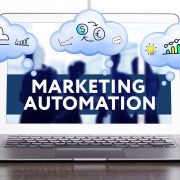The Effective Guide to Leadership Development Programme

Leadership development refers to specific programs utilized by organizations, in order to train or coach an employee(s) about effective leadership requirements. These programs focus on improving the skill-set and attitudes of the individual or group of individuals.
Why is leadership development important?
The productivity of a workforce is largely dependent on the capability of its leaders. The importance of leadership development programs are manifold and are crucial to the development of organizations. These include:
- Effective leadership development program helps people to execute and identify improvement strategies which will increase the productivity of valued resources and organizational success.
- The more a company focuses on internal leadership development, the easier it is to achieve specific organizational objectives and goals such as, strategy change, reorganization, and cultural transformations among others.
- Leadership development has been shown to help people become more open to constructive feedback and develop self-awareness, clarify behavioural patterns that may hinder job effectiveness, and also identify strengths and personal development needs.
- Through proper coaching, a leader’s ability to assimilate is heightened, and a high-potential leader is developed. Thus, creating a highly effective manager who will undoubtedly assure success in new assignments.
- In the long-run, having leaders that can foster a positive culture will provide a big impact on the organization.

There are two major approaches to leadership development and training programs which are individual or Self-directed approach and collective or other-directed approach. It’s essential that you learn and understand the approaches you can implement in improving your leadership development.
Formal vs. Informal training
Formal approaches are well structured, organized, pre-planned and forward-looking in order to achieve a specific outcome. While informal approaches are the knowledge you gain while on the job, carrying out your various day-to-day activities, reading a book or having discussions with a friend or colleague.
Regardless of the approach, that is, informal or informal, it is vital to capture and recognize that learning is a continuous process. You can’t just read a book or two and claim to know all about effective leadership.
If you are to become a great leader, then you need to learn to learn, and continue on the pathways to leadership development. The tip for continuously learning is to develop the ability to reflect on your past experiences as well as the experiences of others.
Individual or Self-directed Vs. Collective or Other-directed training
Individual development has been the targeted approach for a while now. Just as the name implies, it focuses on the development of a particular person or individual, solely to identify the person’s weaknesses and strengths, and in turn, train and improve his/her ability and trait.
This can be achieved through strategies like attending different seminars or workshops, reading books or other educational resources, one-on-one coaching, and questionnaires, among others.
The advantage of this approach is vast. The most important being undivided attention on the individual which will boost or speed up the individual’s skill and trait. However, this approach can be difficult to implement, costly and also send mixed messages within an organization.
Collective or Other-directed approach
A more recent approach is the collective approach, which focuses on training a group of people rather than an individual. This approach is easier to implement and can also produce powerful results in terms of leadership succession.
However, due to a lack of focus on individual skill-set, people may end up learning skills that do not fit their personalities or personal values or end up developing skills they already have.
Guidance for constructing a leadership development Program
- Communicate your vision by outlining the qualities and skills required to occupy specific leadership positions in your organizations.
- Set SMART organizational goals
- Implement realistic and achievable solutions
Focus on the outcomes by monitoring the performance of the leader at every step of the way, through a regular meeting.
Tips for personal leadership development
- Strategic thinking
Have a broader business perspective. Learn to ‘think outside the box’ and see the big picture. Also learn to understand the ‘why’ and not just the ‘how’. - Coaching
Learn to direct and guide your team rather than always telling them what to do. - Financial Shrewdness
Fine-tune your financial literacy to better understand and interpret the company’s financial statements. - Active Listening
Tone up your ability to pay more attention and demonstrate that you value what other team members have to say. - Industry, competitive and customer knowledge
Understand what your customers need, have a vast knowledge of the industry you are in and know your competitors. - Point balance
Leaders need to know how to balance their strengths and use them when needed and to ‘put a leash’ on them when they are not appropriate. Strengths overused can easily turn into weaknesses. - Time management
Manage your time appropriately and learn to prioritize. Make a step-by-step plan for resolving tasks and avoid seemingly unproductive ventures and focus more on value added activities. - Talent management
Have a succession plan for your position, fill all positions with ‘A players’ and do not be afraid to let go of toxic employees. Refine your ability to hire, promote, delegate, assess and promote your staff. - Leadership Presence and Effective Communication
Learn the ability to ‘command attention’, communicate with people whose styles and perspectives may differ from your own and also respect their perspectives. Utilize available technology to improve internal communications and collaborate virtually. - Integrity Building
Inspire your employees to be people of unquestionable integrity when you stick to your values and core beliefs, do not make unreasonable demands of your team nor make false promises. - Change Management
Learn to summon others to change, instigate changes, be flexible to change, bring needed changes to light, drive company-wide inspiration and motivation to change, and also set the parameters for developing a culture of change within the organization. - Develop an effective collaboration with employees.
- Conflict and confrontational management
- Cross functional knowledge and perspective including the ability to network across boundaries










Leave a Reply
Want to join the discussion?Feel free to contribute!